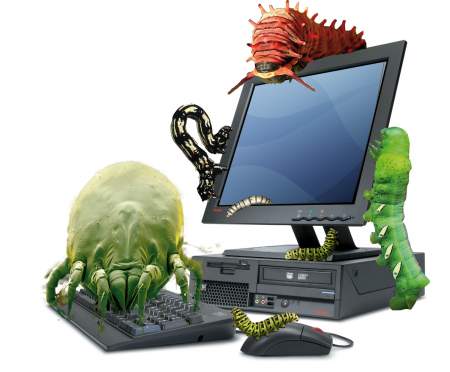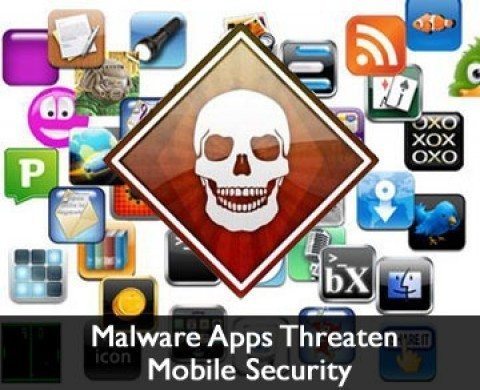
The wireless world of connectivity we live in has risks, and the greatest risk has to be infection of technology.
Technology viruses like trojans and man-in-the-middle look mild today, when you see the tsunami of malware that’s out there.
Just a year ago, I was saying that banks should offer advice to consumer about security and privacy policies related to the use of social media and mobile media.
Now it’s ten times worse, with the names of the day being the honey for the pot.
So last year’s “Justin Bieber gets a boner” becomes this year’s “Justin Bieber stabbed by a crazed fan”.
In fact, facebook is the most scammy site in the world, with all of the ideas from fictional news stories - “OMG! Mother went to jail!” scam; to fictional information you would be desperate to know if you’re a fan – “Justin Bieber’s cell phone number” scam; to the “guess who’s been viewing your facebook profile” scam.
Scam upon scam upon scam.
And it’s far easier to trick someone in this socially connected world into a viral malware than ever before.
Think about it.
Some things you get used to.
You are locked out of your PayPal account. It is urgent that you re-enter your details or your account will be deleted by close of business Friday.
I am Unga Bunga, the grandson of Great Unga Bunga, who died leaving $5,236,456,123.05 in his estate. Please help me get it out ..
OMG, have you seen what they have been saying about you over here?
I get used to all of these as a heavy social mobile net user.
But some are more tricky.
For example, Lauren Vis is the Managing Director of KAS Bank and will be speaking at the Financial Services Club in June.
When looking for his profile details, I found this scam email:
Re: From L. Vis
KAS BANK. Suite 560 Salisbury House
London Wall Broadgate London
EC2M 5NU,United Kingdom
Tel: +447011137826
Dear Friend,
Dear Friend
I am Mr. Lauren Vis I work with KAS Bank here in London. In my department, being the Private Banking Manager (Greater London Regional Office), I discovered an abandoned sum of £19,500,000 GBP (Nineteen million five hundred thousand pounds) in an account that belongs to one of our foreign customers …
Nothing too clever about the Nigerian 419 scam here, except that the name and address details for the bank are all correct and bona fide. Slightly more intelligent.
Or take the one that had me click the other day.
Doing the usual stuff on the iPhone a note came through that a FEDEX parcel could not be delivered and to click on the order details.
Now I was expecting a FEDEX order and so I clicked … and immediately had a computer infection.

Source: Activeresponse.org
These days, regular airline bookings and related orders come through and I just ignore them, but many wouldn’t.
Or not for the first time.
For these reasons, consumers may rightly fear being compromised in their online dealings.
For example, 63% of webmasters whose websites get hacked don't know how the compromise occurred, and only six percent detect the compromise themselves.
Twenty percent of all households have at least one bot-infected computer, and 5% of all enterprise 'assets' are infected.
And typically, every other computer has some sort of infection.
Yes every other computer.
1 in 2.
And don’t think that by being a smug MAC user, you escape notice.
A recent malware infected over 600,000 MACs, mostly in the US, and 75% of all MACs are now believed to be susceptible to malware attacks.
And mobile is making this worse.

Source: Patrickwagner.com
A recent study conducted by Websense, and the Ponemon Institute found that 53 percent of organizations experience data breaches due to insecure mobile devices.
No wonder another study by the US Federal Reserve found that, among users of mobile phones who haven’t yet adopted mobile banking, about half said they were “concerned” about security.
And rightly so, you may feel, as 70% of mobile banking apps are not secure according to a study by myprivatebanking.
Add on to this that cybercrooks have worked out how to get around OTP and other mobile bank security systems and, in a more luddite Skinner moment, I’m thinking about going back to using cheques, branches and cash only in the future.

Chris M Skinner
Chris Skinner is best known as an independent commentator on the financial markets through his blog, TheFinanser.com, as author of the bestselling book Digital Bank, and Chair of the European networking forum the Financial Services Club. He has been voted one of the most influential people in banking by The Financial Brand (as well as one of the best blogs), a FinTech Titan (Next Bank), one of the Fintech Leaders you need to follow (City AM, Deluxe and Jax Finance), as well as one of the Top 40 most influential people in financial technology by the Wall Street Journal's Financial News. To learn more click here...

